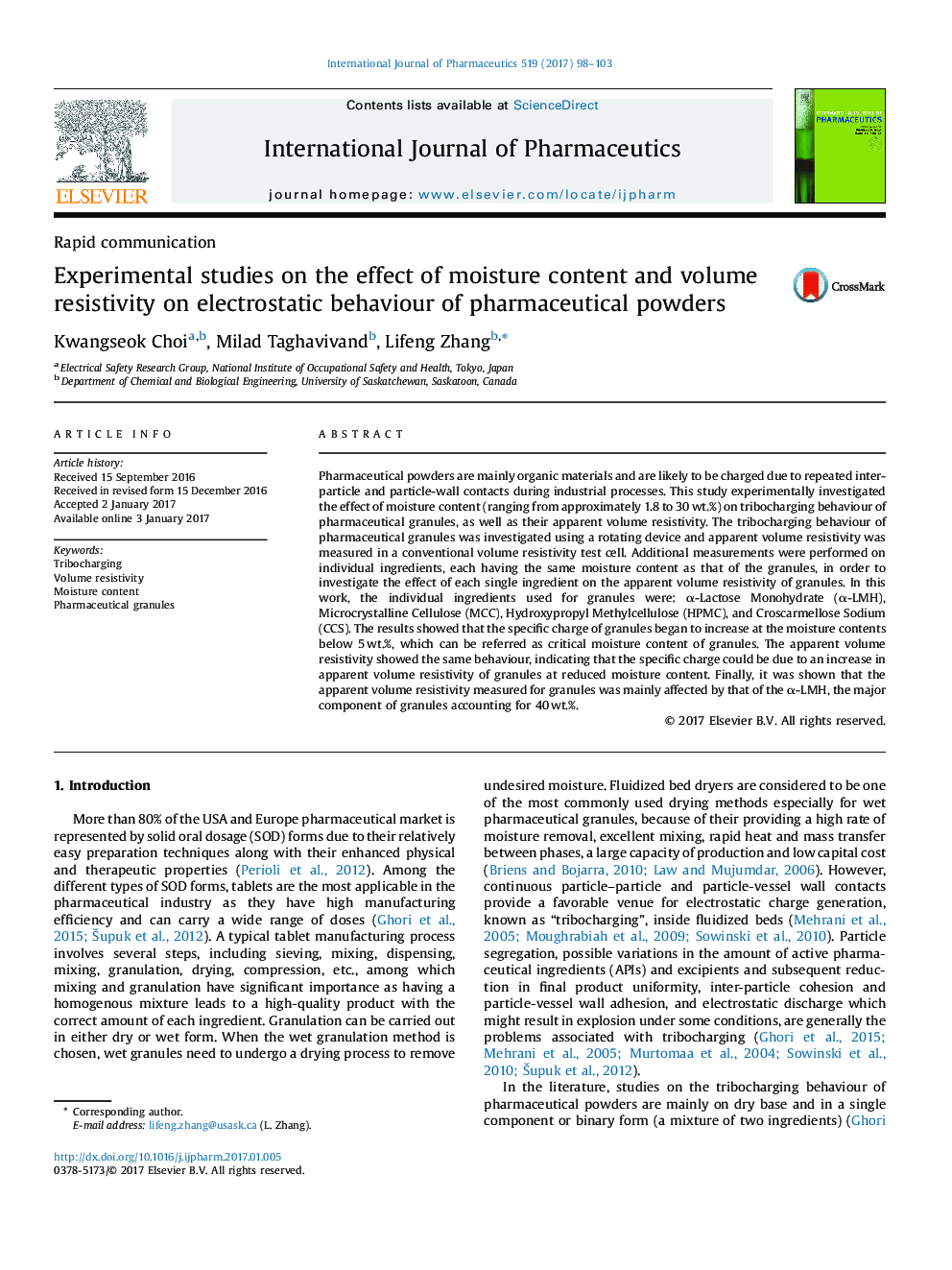| کد مقاله | کد نشریه | سال انتشار | مقاله انگلیسی | نسخه تمام متن |
|---|---|---|---|---|
| 5550713 | 1557298 | 2017 | 6 صفحه PDF | دانلود رایگان |
Pharmaceutical powders are mainly organic materials and are likely to be charged due to repeated inter-particle and particle-wall contacts during industrial processes. This study experimentally investigated the effect of moisture content (ranging from approximately 1.8 to 30 wt.%) on tribocharging behaviour of pharmaceutical granules, as well as their apparent volume resistivity. The tribocharging behaviour of pharmaceutical granules was investigated using a rotating device and apparent volume resistivity was measured in a conventional volume resistivity test cell. Additional measurements were performed on individual ingredients, each having the same moisture content as that of the granules, in order to investigate the effect of each single ingredient on the apparent volume resistivity of granules. In this work, the individual ingredients used for granules were: α-Lactose Monohydrate (α-LMH), Microcrystalline Cellulose (MCC), Hydroxypropyl Methylcellulose (HPMC), and Croscarmellose Sodium (CCS). The results showed that the specific charge of granules began to increase at the moisture contents below 5 wt.%, which can be referred as critical moisture content of granules. The apparent volume resistivity showed the same behaviour, indicating that the specific charge could be due to an increase in apparent volume resistivity of granules at reduced moisture content. Finally, it was shown that the apparent volume resistivity measured for granules was mainly affected by that of the α-LMH, the major component of granules accounting for 40 wt.%.
133
Journal: International Journal of Pharmaceutics - Volume 519, Issues 1â2, 15 March 2017, Pages 98-103
